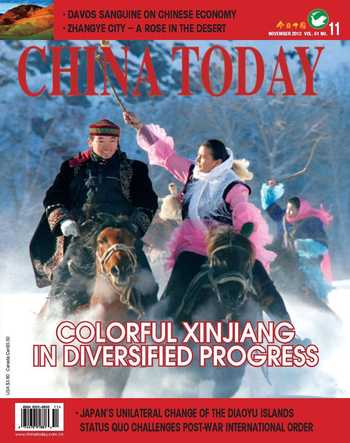Overcoming the Recession Requires Changes at Home and Abroad
Chinas cooling economy recently aroused world concern when its growth fell below eight percent. But such growth, although slower compared to its previous record, as Unilever CEO Paul Polman pointed out, is still much better than the current situation in Western countries.
This, however, gives China no reason to be complacent. It needs to sustain economic vigor, which entails tapping into its vast and growing domestic market, set to be the future powerhouse of the Chinese economy, as demand from its major trade partners is falling .
High taxes and fees have sapped the Chinese economy, and the government has made moves to cut administrative charges to businesses as well as consumers to boost domestic demand. One trial with good prospects is the expressway toll exemption for passenger vehicles with no more than seven seats during national holidays, fi rst implemented on September 30 during the Mid-autumn Festival. Another, whose details are still being hammered out, involves the credit card processing fees charged to merchants.
The Chinese government has vowed greater support for seven emerging industries in the 12th Five-year Plan. They include energy conservation and environmental protection, new information technology, high-end equipment manufacturing, and new energy vehicles, and will be the emphasis of the new round of Chinas stimulus plan. Recently 11 central government departments introduced new energy models into their fleets of offi cial business vehicles, opening up the possibility of new energy cars becoming eligible for future government procurement.
Chinas ambition for energizing industries, however, is threatened by trade confl icts as trading partners resort to protectionist measures to boost their own manufactures and save jobs amid a weak economy. On September 6, the EU initiated anti-dumping investigations against Chinese PV modules and key components such as silicon slices involving over US $20 billion, the largest EU trade litigation against China to date. On September 17, the U.S. government requested dispute settlement consultations with China at the World Trade Organization (WTO) concerning Chinas auto and auto parts “export base” subsidy program. This is the ninth trade action the Obama administration has brought against China, and the third this year.
In a globalized era when economies all over the world are closely linked, trade protectionism will inevitably induce corresponding retaliatory measures from rival countries and damage the world economy as a whole. It is enhanced cooperation, rather than confrontation, that will enable countries to ride out the crisis and achieve future development.

